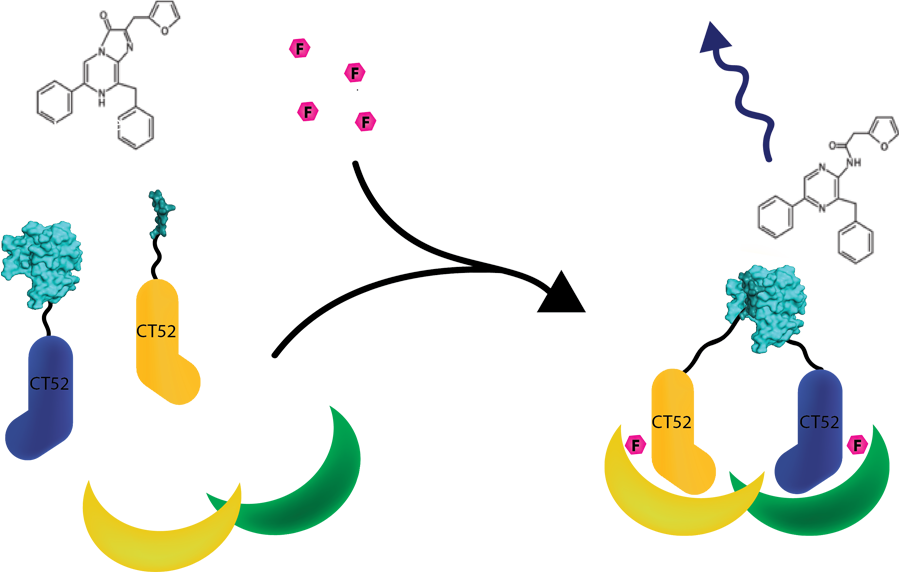Difference between revisions of "Part:BBa K2065000:Experience"
Tjvsonsbeek (Talk | contribs) (→iGEM TU Eindhoven 2016) |
|||
| (6 intermediate revisions by the same user not shown) | |||
| Line 2: | Line 2: | ||
__NOTOC__ | __NOTOC__ | ||
===Applications of BBa_K2065000=== | ===Applications of BBa_K2065000=== | ||
| − | + | ||
| + | ==iGEM TU Eindhoven 2016== | ||
| + | |||
| + | iGEM TU Eindhoven used this part in combination with CT52-LargeBiT ("https://parts.igem.org/Part:BBa_K2065007"). These two proteins could dimerize on our heterodimeric T-14-3-3 scaffold proteins with mutation which were designed by our team. When dimerized the functional luciferase protein was formed. This protein showed luminescence at 460 nm. This system was used as a read out method for T14-3-3 heterodimers. It is schemtically visualised in figure 1. For more detailed information about the application of CT52-SmallBiT visit our wiki "http://2016.igem.org/Team:TU-Eindhoven/Read-out". | ||
| + | |||
| + | [[File:T--TU-Eindhoven--NanolUcreadoutbb.png]] | ||
| + | <br> | ||
| + | ''Figure 1: Measurement system for T14-3-3 heterodimers using the NanoBiT system linked to CT52'' | ||
Latest revision as of 00:19, 19 October 2016
Applications of BBa_K2065000
iGEM TU Eindhoven 2016
iGEM TU Eindhoven used this part in combination with CT52-LargeBiT ("https://parts.igem.org/Part:BBa_K2065007"). These two proteins could dimerize on our heterodimeric T-14-3-3 scaffold proteins with mutation which were designed by our team. When dimerized the functional luciferase protein was formed. This protein showed luminescence at 460 nm. This system was used as a read out method for T14-3-3 heterodimers. It is schemtically visualised in figure 1. For more detailed information about the application of CT52-SmallBiT visit our wiki "http://2016.igem.org/Team:TU-Eindhoven/Read-out".

Figure 1: Measurement system for T14-3-3 heterodimers using the NanoBiT system linked to CT52
User Reviews
UNIQ16bc35652898e51a-partinfo-00000000-QINU UNIQ16bc35652898e51a-partinfo-00000001-QINU
